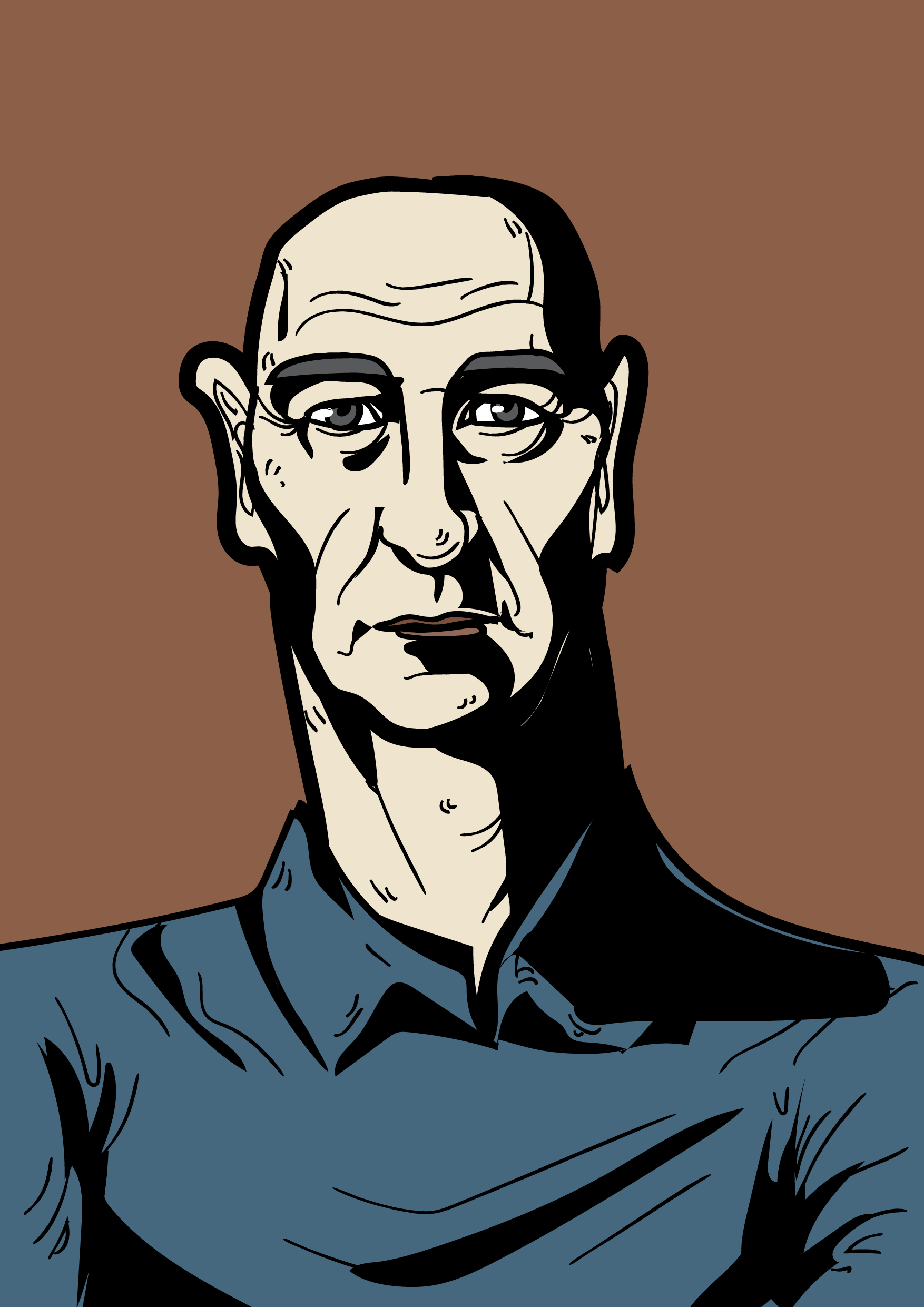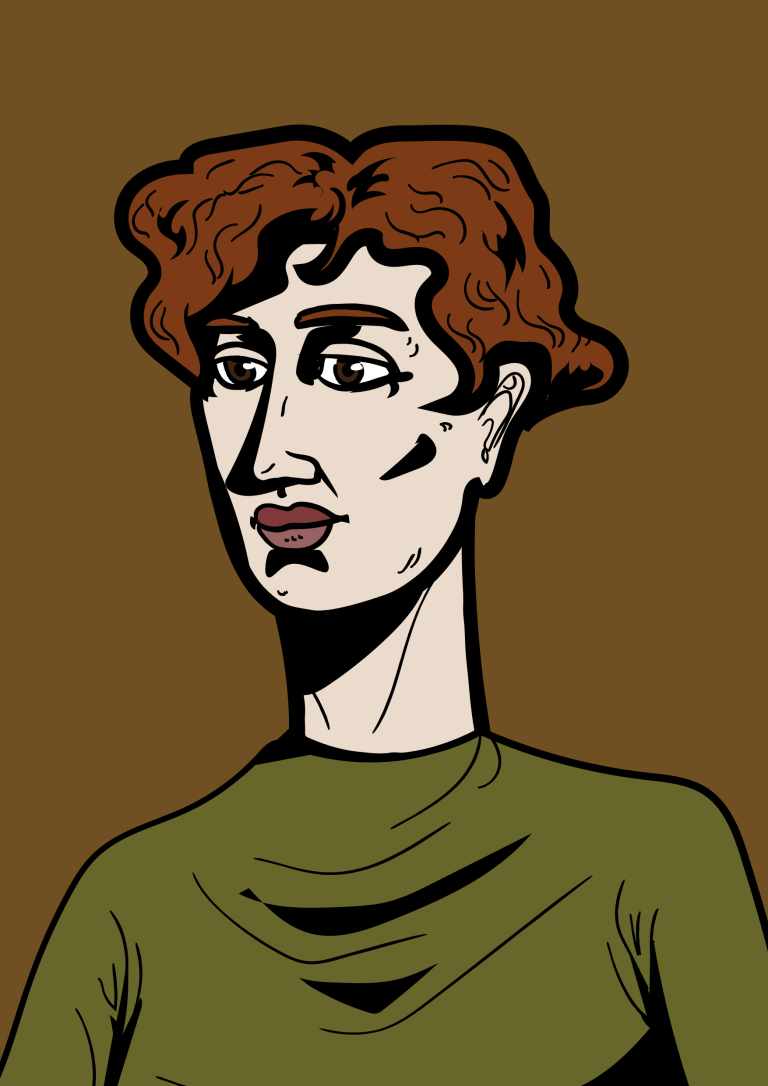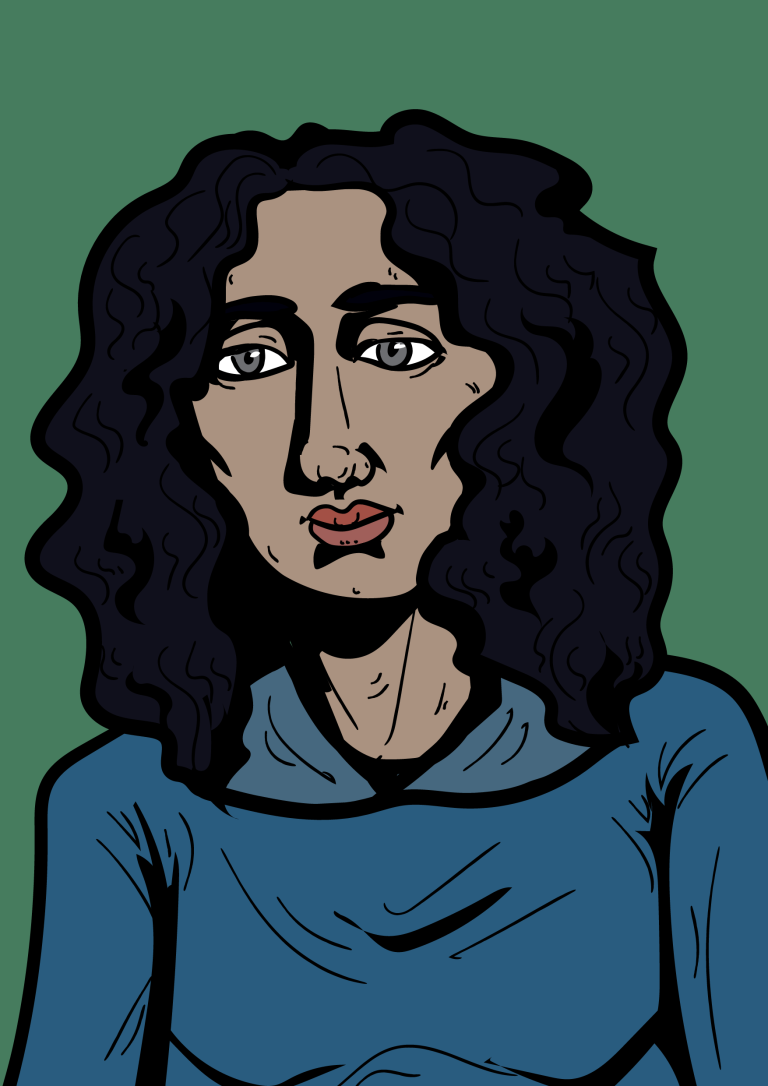
My name is Oleg. I am from Kherson, and now I am in Odesa. I’m over 50 years old, and you know, I never thought that my fate would turn out to be like this. I remember it as well as I do now: On February 24th, I went out to the balcony. I have a view of Chornobaivka from there. And then the first explosion. At first I didn’t even realize what was going on. Then I saw a rocket flying. And I realized: it had started…
I got a call from work at six in the morning. They told me I was to come to the office. I was already at work at seven. At that time, I had been working at the railroad for several years, and it was a strategic facility. So we simply buried all the station’s schematics and blueprints and all the documentation in our employee’s garden. I can finally talk about this.
After that, we let people go home, and at about ten o’clock, firefights started on Antonivskyi Bridge. Until March 13, we still had the chance to express our opinions and resist the occupiers. But then they started shooting at civilians. Throwing smoke bombs. They shot an old man. And we stopped protesting openly. We tried not to meet the Russian soldiers in any way. When they brought humanitarian aid, none of the true Kherson citizens came up and took it. So they staged how “Khersonians” took it, and thanked these soldiers… In early April, my diet was half a glass of rice a day. It’s okay, I recovered, and my conscience is clear. Although I was worried for my life.
I moved around the city only with a push-button phone. I realized that a smartphone can not only be searched, but also taken away, especially if it’s expensive. But the Russian soldiers have never come to my house. I constantly covered the windows with blankets because I was afraid of shelling. I knew exactly what broken glass could do. And the camouflage was helpful too. My neighbors and friends, unfortunately, were not so lucky, they had “visitors”.
In general, the Russian soldiers seemed to find LGBT people disgusting. They barely tolerated heterosexuals, gays or lesbians even less so… The Russian soldiers smashed and looted the Insha Charitable Foundation office because there were LGBT symbols there. I saw how the Russian soldiers came to the Mongoose Charitable Foundation as well. This foundation supports HIV-positive people. Again, there were rainbow symbols on the walls. The Russians asked us very, very insistently to remove these symbols. They said you can continue to work with your HIV-positive people, but without the rainbow elements.
As you can imagine, it is very difficult to exist in such circumstances for a long time. So I decided to leave. I was evacuated alone. We were going through Halahanivka. In Snihurivka, we were stopped by the Russian soldiers. They were dirty and smelly. They pulled me and the driver out of the car, threw us face down on the asphalt so that my glasses broke. I had a bag with me, there was my cat inside. They took our phones, and one of the soldiers asked: “What’s in your bag?” I said: “A cat”. So he ordered me to open the bag. He stuck his hand in there, and the cat scratched into it. Even animals understand who is who.
And then I felt a gun stuck between my shoulder blades. Well, I thought, that’s it, it’s time to say goodbye to life. But at that moment, an FSB officer came out, very clean looking. He said: “Let this car go”. So we drove on. And then we came under fire, the driver went through the fields to Bashtanka. We managed to escape. And in Bashtanka we saw our wounded soldier. His arm and leg were blown off. I was carrying a bottle of cognac with me. I eased his passing as much as I could – I poured some cognac into his mouth. And he died in my arms… And the cat was fine.
I am, I guess, as well as I can be. I often meet my fellow countrymen here. And if we left because we didn’t want to live under the occupation, now people are leaving because they have lost everything. Now the Kherson people who leave seem reserved at best. At worst, they have psychological issues, from confusion and PTSD to clinical depression.
But in any case, I see positive changes in society. And it’s not just about military stuff, but in general. Even the attitude towards LGBT people is improving. Yes, of course, this is not happening so fast. But there are changes. And I hope that this process won’t stop after the victory.



